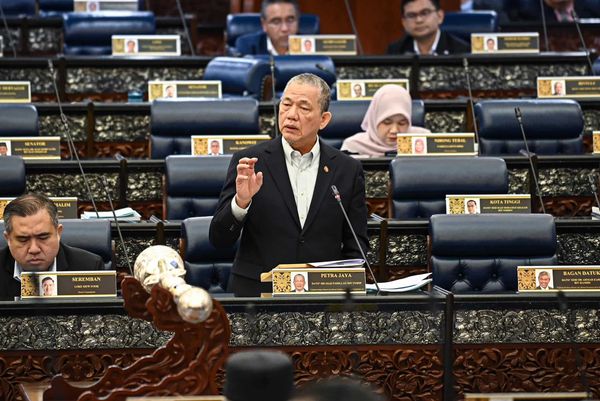By Yasmin Ramlan
KUALA LUMPUR, July 23 — The government has assured that the new electricity tariff structure, which took effect on July 1, will be more transparent and have minimal impact on domestic users, affecting only a small segment of households and businesses.
Energy Transition and Water Transformation Minister Datuk Seri Fadillah Yusof said the revised tariff announced in June introduces four components, namely energy charge, capacity charge, network charge, and retail charge — replacing the previous system that comprised only energy and minimum charges.
“The new structure is based on four main principles, which are transparency, cost reflectiveness, fair cost distribution, and minimal impact on domestic users,” he said during the question-and- answer session in the Dewan Rakyat today.
Unlike the previous system, which grouped consumers by economic activity, the new tariff rates are determined by voltage connection levels.
“This ensures non-domestic users are charged according to actual supply costs,” he said.
To cushion the impact on households and small businesses, Fadillah said domestic users consuming 600 kilowatt-hour (kWh) or less monthly will be exempted from the retail charge, while those using not more than 1,000 kWh and SMEs with consumption below 200KWh will receive energy efficiency incentives.
The government estimated 85 per cent of domestic users will not experience any increase in their electricity bills.
The government will also maintain the RM40 monthly rebate for hardcore poor households registered under the e-Kasih system, with RM55 million allocated this year.
He added that, as part of cost stabilisation efforts, the ministry has introduced the Automatic Fuel Adjustment (AFA) mechanism to replace the previous Imbalance Cost Pass-Through (ICPT) system.
AFA will adjust fuel costs monthly rather than bi-annually, with safeguards requiring ministerial approval for increases above 10 per cent. Domestic users consuming below 600kWh will be exempted from these adjustments.
He said industries are encouraged to adopt energy-efficient practices and renewable energy to manage costs, while Tenaga Nasional Bhb’s profits will be reinvested into grid upgrades and renewable integration.
He emphasised that the government also aims to expand smart meter installations and promote time-of-use tariff (TOU), which offer cheaper rates during off-peak hours.
“The approach is designed not only to protect consumers but also to encourage efficient energy use and ensure long-term sustainability,” he said.




